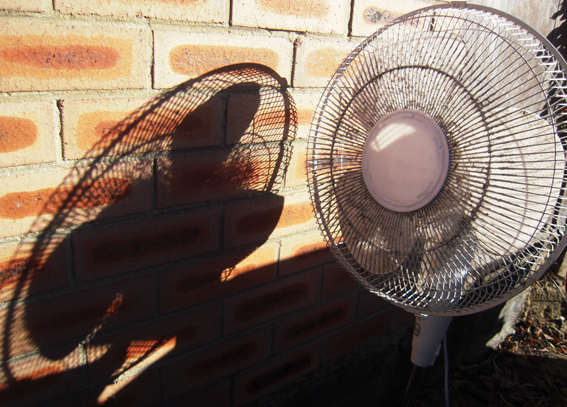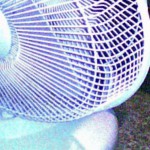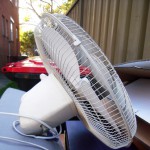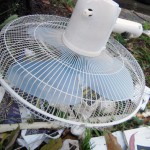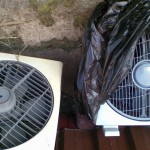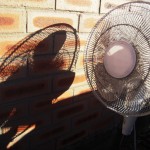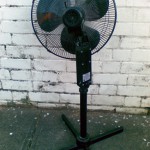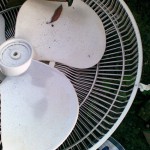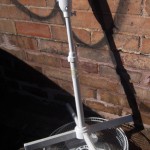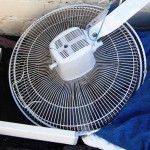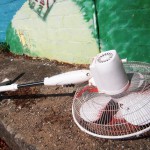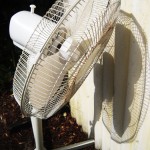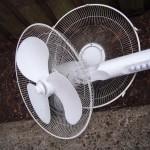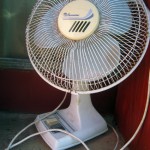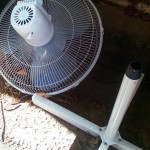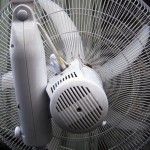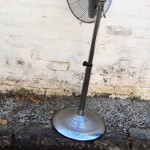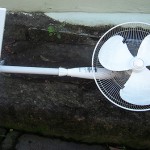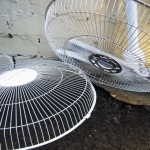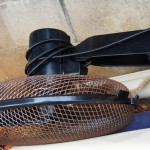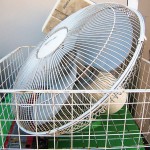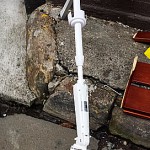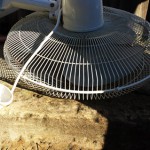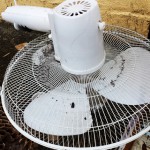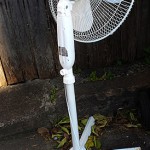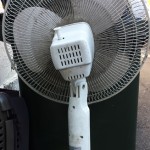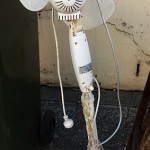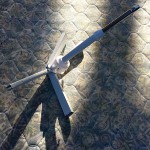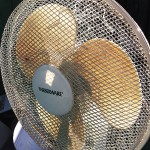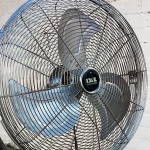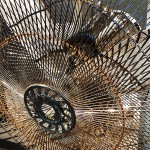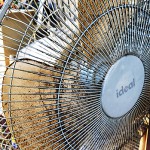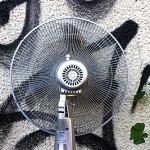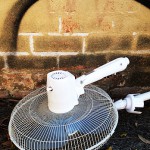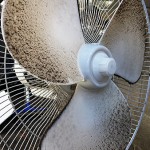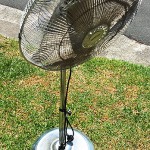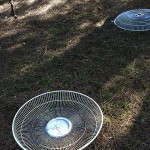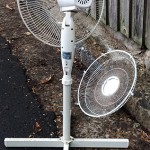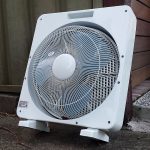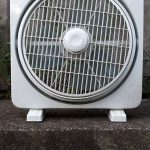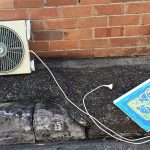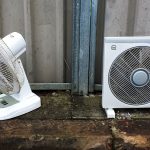If winter is the season of death for heaters then summer is the time when fans fall by the wayside like leaves from the vine. And rather like its sub-species, the fan heater, the death of a fan is always a little baffling. Power goes in, a little motor turns and around go the vanes, sending out all that sweet cooling air. What could go wrong?
In fact, there’s something rather incongruous about the fan, almost unnatural: the large, flat impassive face, the small, heavy head which contains the whirring mechanics, all sitting atop a long spindly neck. It doesn’t feel right, out of balance, lop-sided. Something’s got to give.
Oil heaters just emit, silently, passively, but fans have to work, humming away for hours at a time, the graceful ducking and turning of the head like a king surveying his subjects. Who hasn’t been grateful to receive the beneficence of the fan as it distributes its relieving freshness all around, then takes it away, brings it back…? There’s a certain primal quality about the fan’s breath, that tiny squeak of anxiety when the head tilts away and despite everything, despite the fact that we know it is just a machine operating robotically, impartially, a part of us wonders if it is withdrawing for good, never to return. What have we done to offend it?
The breeze of a fan is like the love of a parent, seemingly constant and unending but, at the flick of switch, capable of waxing and waning. How do we want to feel it? Focused solely on us or shared amongst others, only returning intermittently to remind us of its presence?
Perhaps that’s why the death of a fan is also something of a relief. Of course we wish we still had it, its loss is immense but at least now we know that it is gone forever, never to return, instead of this endless coming and going. The memory of the fan lives on, its devotion to our comfort is missed, but now it earns a well-deserved rest. There will be new fans, surrogate fans, because the need for a good fan is eternal (at least in warm places).
